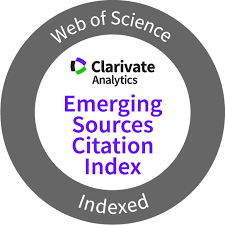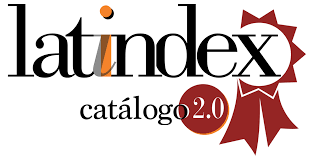Interests groups access in the EU's portfolio-based governance
DOI:
https://doi.org/10.5783/revrrpp.v14i28.879Keywords:
lobbying, interest groups, European Union, policy-making, governance, public relationsAbstract
The European Union emphasizes transparency and accountability as fundamental pillars of democracy, with the European Transparency Register serving as a clear example of the efforts made in this regard. These principles are crucial for preventing corruption, fostering citizen participation, and ensuring effective decision-making, all of which are vital for maintaining public trust in EU institutions. This study explores the meeting patterns between the European Commission and registered interest groups, seeking to establish a relationship between the economic or social nature of the portfolios and the interests represented by the entities they meet with. It hypothesizes a correlation between the economic nature of Commission officials' portfolios and their frequent meetings with interest groups defending material interests. Conversely, officials overseeing social portfolios are expected to meet more frequently with organizations that advocate for immaterial interests. Using a longitudinal analytical-descriptive approach, this study analyzes 24,587 registered meetings from November 2014 to October 2023, covering two legislative terms of the European Union. The results reveal that European Commission officials, regardless of portfolio type, predominantly meet with groups representing material interests, contradicting the expectation that social portfolios engage more with immaterial groups. This underscores the strong influence of economic interests on EU policy.
Downloads
References
Almansa-Martínez, A., Moreno-Cabanillas, A., & Castillo-Esparcia, A. (2022). Political communication in Europe. The role of the lobby and its communication strategies. In Daniel Barredo Ibáñez, Laura M. Castro, Araceli Espinosa, Iván Puentes-Rivera & Paulo Carlos López-López (Eds.), International Conference on Communication and Applied Technologies (pp. 238-248). Springer. https://doi.org/10.1007/978-981-16-5792-4_24
Anastasiadis, S. (2014). Toward a view of citizenship and lobbying: Corporate engagement in the political process. Business Society, 53(2), 260-299. https://doi.org/10.1177/0007650313483495
Andersen, S. S., & Eliassen, K. A. (1995). EU lobbying: The new research agenda. European Journal of Political Research, 27(4), 427-441. https://doi.org/10.1111/j.1475-6765.1995.tb00478.x
Benson, D., & Jordan, A. (2015). Environmental policy: Protection and regulation. In James D. Wright (Ed.), International encyclopedia of the social & behavioral sciences (pp. 778-783). Elsevier. https://doi.org/10.1016/b978-0-08-097086-8.91014-6
Bernhagen, P., & Trani, B. (2012). Interest group mobilization and lobbying patterns in Britain: A newspaper analysis. Interest Groups & Advocacy, 1, 48-66. https://doi.org/10.1057/iga.2012.2
Bernhagen, P., Kollman, K., & Patsiurko, N. (2022). Beyond lobbying: The political determinants of adopting corporate social responsibility frameworks in the European Union and the USA. Interest Groups & Advocacy, 11(3), 373-398. https://doi.org/10.1057/s41309-022-00155-2
Bitonti, A. (2020). Where it all starts: Lobbying, democracy and the public interest. Journal of Public Affairs, 20(2), e2001. https://doi.org/10.1002/pa.2001
Bombardini, M., & Trebbi, F. (2020). Empirical models of lobbying. Annual Review of Economics, 12, 391-413. https://doi.org/10.1146/annurev-economics-082019-024350
Bouwen, P. (2002). Corporate lobbying in the European Union: the logic of access. Journal of European Public Policy, 9(3), 365-390. https://doi.org/10.1080/13501760210138796
Bratu, C. (2021). Lobby and transparency—Mutually inclusive for the greater good. A study on the Transparency Register of the European Union. Europolity, 15(1), 51-63.
Castillo-Esparcia, A. (2011). Lobby y comunicación: el lobbying como estrategia comunicativa. Comunicación Social.
Castillo-Esparcia, A. & Almansa-Martínez, A. (2011). Interacciones comunicativas entre lobbies, sistema político y medios de comunicación. Temas de Comunicación, 23, 67-87. https://doi.org/10.62876/tc.v0i23.675
Coen, D. (2007). Empirical and theoretical studies in EU lobbying. Journal of European Public Policy, 14(3), 333-345. https://doi.org/10.1080/13501760701243731
De Bruycker, I., & Colli, F. (2023). Affluence, congruence, and lobbying success in EU climate policy. Journal of Public Policy, 43(3), 1-21. https://doi.org/10.1017/s0143814x23000120
Dinan, W. (2021). Lobbying transparency: The limits of EU monitory democracy. Politics and Governance, 9(1), 237-247. https://doi.org/10.17645/pag.v9i1.3936
Drieghe, L., Orbie, J., Potjomkina, D., & Shahin, J. (2022). Participation of civil society in EU trade policy making: how inclusive is inclusion?. New Political Economy, 27(4), 581-596. https://doi.org/10.1080/13563467.2021.1879763
Dür, A., & Mateo, G. (2012). Who lobbies the European Union? National interest groups in a multilevel polity. Journal of European Public Policy, 19(7), 969-987. https://doi.org/10.1080/13501763.2012.672103
Egenhofer, C., Kurpas, S., & Van Schaik, L. (2009). The ever-changing Union: An introduction to the history, institutions and decision-making processes of the European Union. Centre for European Policy Studies.
European Transparency Register. (2023). Meetings with Interest Representatives. [Dataset] General Secretariat. Retrieved on October 28, 2023 from http://data.europa.eu/88u/dataset/european-commission-meetings-with-interest-representatives
Gallagher, K.; Dahl, M.; & Frugé, A. (2017). Strategies of Resistance: Diversification and Diffusion. American Journal of Political Science, 61(3), 591-605. https://doi.org/10.1111/ajps.12304
Graziano, L. (2001). Lobbying, Pluralism and Democracy. Palgrave Macmillan.
Greenwood, J., & Dreger, J. (2013). The Transparency Register: A European vanguard of strong lobby regulation? Interest Groups & Advocacy, 2, 139-162. https://doi.org/10.1057/iga.2013.3
Greenwood, J. (2017). Interest representation in the European Union. Bloomsbury Publishing.
Grose, C. R., Lopez, P., Sadhwani, S., & Yoshinaka, A. (2022). Social lobbying. The Journal of Politics, 84(1), 367-382. https://doi.org/10.1086/714923
Gurvitch, G. (1950). La vocation actuelle de la sociologie. Presses Universitaires.
Hall, D. R. (1969). Cooperative lobbying: the power of pressure. University of Arizona Press.
Hernández-Vigueras, J. (2013). Los lobbies financieros. Tentáculos del poder. Clave Intelectual.
Hirsch, A. V., Kang, K., Montagnes, B. P., & You, H. Y. (2023). Lobbyists as gatekeepers: Theory and evidence. The Journal of Politics, 85(2), 731-748. https://doi.org/10.1086/723026
Hix, S., & Høyland, B. (2022). The political system of the European Union. Bloomsbury Publishing.
Holman, C., & Luneburg, W. (2012). Lobbying and transparency: A comparative analysis of regulatory reform. Interest Groups & Advocacy, 1, 75-104. https://doi.org/10.1057/iga.2012.4
Hurka, S., & Haag, M. (2020). Policy complexity and legislative duration in the European Union. European Union Politics, 21(1), 87-108. https://doi.org/10.1177/1465116519859431
Hurka, S., Haag, M., & Kaplaner, C. (2022). Policy complexity in the European Union, 1993-today: Introducing the EUPLEX dataset. Journal of European Public Policy, 29(9), 1512-1527. https://doi.org/10.1080/13501763.2021.1938174
Ihlen, Ø., & Raknes, K. (2020). Appeals to ‘the public interest’: How public relations and lobbying create a social license to operate. Public Relations Review, 46(5), 101976. https://doi.org/10.1016/j.pubrev.2020.101976
Junk, W. M., Crepaz, M., Hanegraaff, M., Berkhout, J., & Aizenberg, E. (2022). Changes in interest group access in times of crisis: no pain, no (lobby) gain. Journal of European Public Policy, 29(9), 1374-1394. https://doi.org/10.1080/13501763.2021.1968936
Lobbycom Project (2023). Bases de datos - Grupos de Interés. [Dataset] Retrieved on October 28, 2023 from https://lobbycomeneuropa.com/bases-de-datos/
Lowery, D. (2013). Lobbying influence: Meaning, measurement and missing. Interest Groups & Advocacy, 2, 1-26. https://doi.org/10.1057/iga.2012.20
Moreno-Cabanillas, A., & Castillo-Esparcia, A. (2023). The role of lobbies in the process of European construction. Revista Internacional de Relaciones Públicas, 13(25), 93-110. https://doi.org/10.5783/revrrpp.v13i25.809
Nicoll, J. N. (2007). Strategic lobbying. Demonstrating how legislative context affects interest groups’ lobbying tactics. American Politics Research, 35(6), 826-845. https://doi.org/10.1177/1532673X07300681
Nieto, C. H. (2006). El ejemplo institucional de la Unión Europea. OASIS: Observatorio de Análisis de los Sistemas Internacionales, 12, 299-316.
Ortuño, M. (2022). Los grupos de presión en la sociedad actual. Revista Mexicana de Ciencias Políticas y Sociales, 13(49), 311-335.
Peterson, M., & Godby, R. W. (2020). Citizen participation in political markets: Extending service-dominant logic to public policy. Journal of Public Policy & Marketing, 39(4), 412-429. https://doi.org/10.1177/0743915620912287
Peterson, J. (1995). Decision‐making in the European Union: Towards a framework for analysis. Journal of European Public Policy, 2(1), 69-93. https://doi.org/10.1080/13501769508406975
Richan, W. C. (2013). Lobbying for social change. Routledge. https://doi.org/10.4324/9780203051573
Saurugger, S. (2008). Interest groups and democracy in the European Union. West European Politics, 31(6), 1274-1291. https://doi.org/10.1080/01402380802374288
Scott, J. C. (2014). The social process of lobbying: Cooperation or collusion?. Routledge. https://doi.org/10.4324/9781315855622
Turnbull‐Dugarte, S. J., Townsley, J., Foos, F., & Baron, D. (2022). Mobilising support when the stakes are high: Mass emails affect constituent‐to‐legislator lobbying. European Journal of Political Research, 61(2), 601-619. https://doi.org/10.1111/1475-6765.12483
Walker, E. T. (2012). Putting a face on the issue: Corporate stakeholder mobilization in professional grassroots lobbying campaigns. Business & Society, 51(4), 561-601. https://doi.org/10.1177/0007650309350210
Wirtz, B. W., Weyerer, J. C., & Rösch, M. (2019). Open government and citizen participation: an empirical analysis of citizen expectancy towards open government data. International Review of Administrative Sciences, 85(3), 566-586. https://doi.org/10.1177/0020852317719996
Woll, C. (2019). Corporate power beyond lobbying. American Affairs, 3(3), 38-55.
Downloads
Published
How to Cite
Issue
Section
License
Copyright (c) 2024 Álvaro Serna-Ortega, Aritz Gorostiza-Cerviño, Andrea Moreno-Cabanillas

This work is licensed under a Creative Commons Attribution-NonCommercial-NoDerivatives 4.0 International License.
Authors publishing in this journal agree to the following terms:
a. Authors retain copyright and grant the journal the right to be the first publication of the work as licensed under a Creative Commons Attribution License that allows others to share the work with an acknowledgement of authorship of the work and initial publication in this journal.
b. Authors may separately enter into additional arrangements for non-exclusive distribution of the version of the work published in the journal (e.g., placing it in an institutional repository or publishing it in a book), with an acknowledgement of initial publication in this journal.
c. Authors are allowed and encouraged to disseminate their work electronically (e.g. in institutional repositories or on their own website) before and during the submission process, as it can lead to productive exchanges, as well as earlier and higher citation of published work (see The Effect of Open Access).





